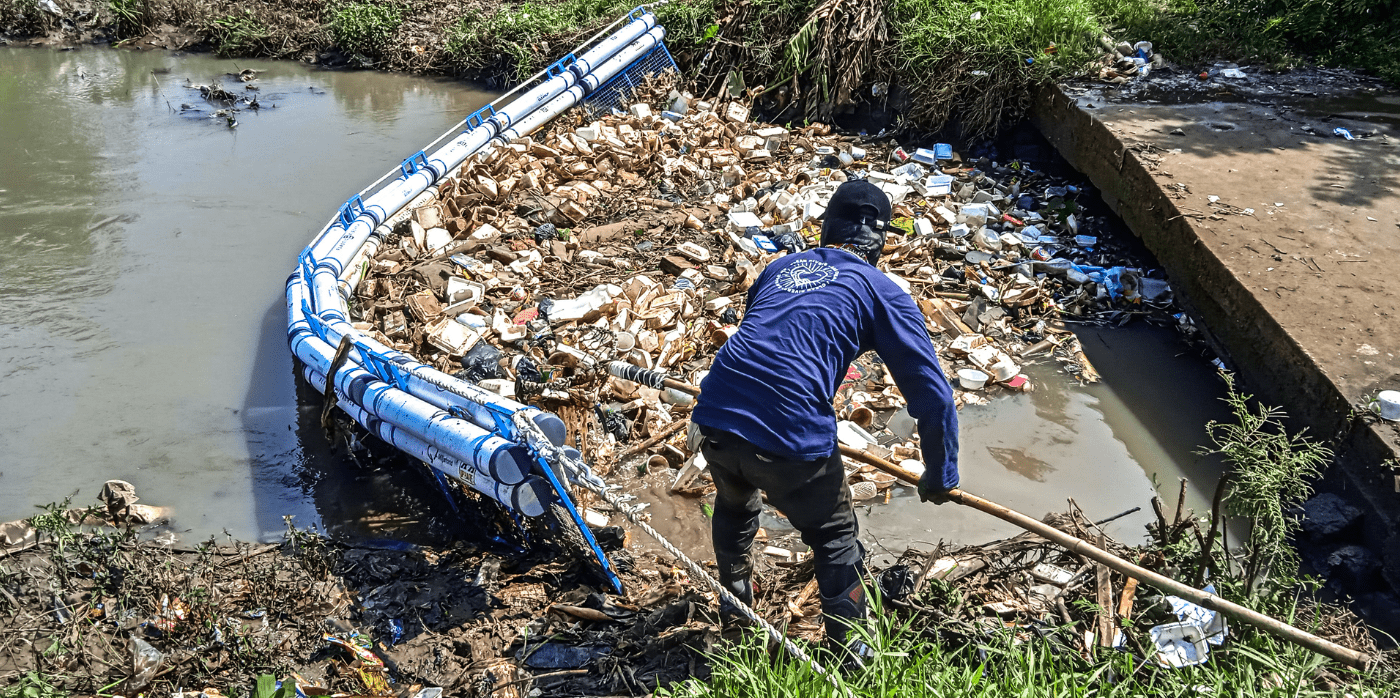
Spotted: Around 8 million tonnes of plastic is dumped into the oceans every year. And roughly 80 per cent of this plastic waste actually started out in rivers. Complicating cleanup was a finding in which researchers concluded that more than 1,000 rivers are responsible for most of the plastic that ends up in the ocean. The researchers also found that most of that waste is carried by small rivers that flow through densely populated urban areas, not the largest rivers.
To tackle this plastic scourge, Germany-based enterprise Plastic Fischer has developed a floating barrier, called TrashBoom, designed to prevent plastic waste from reaching the ocean. The startup was founded by three students, who realised during a trip to Vietnam that the river view from their balcony was actually a stream of plastic waste floating on the surface. The TrashBoom is a floating fence constructed from locally available materials that traps the plastic. The waste is then manually gathered and transported to sorting facilities.
All recyclables are reintroduced into the supply chain and unrecyclable materials are sent to certified Thermal Recovery Plants. All of the TrashBooms are built locally, with locally sourced, low-tech materials. The projects are managed by locally hired staff and project managers, with only two full-time employees working in Europe. The entire process is verified through plastic recycling platform Empower.
TrashBoom is working in collaboration with a number of oganisations, including Allianz and ‘Make A Change World’ in Bali, and has inspired a number of others. The company says that they, “are very proud that we have managed to motivate other companies like e.g. Sungai Watch, Pangea Movement and other NGOs to copy our approach and stop plastic in rivers with simple technology.”
As the tide of plastic sweeping into rivers, oceans, and every other corner of the globe continues unabated, we are also seeing a growth of innovations aimed at stemming it. These include other types of river barrier projects, ocean barrier projects and the use of ships scrubbers and autonomous robots to remove plastic.
Written By: Lisa Magloff

